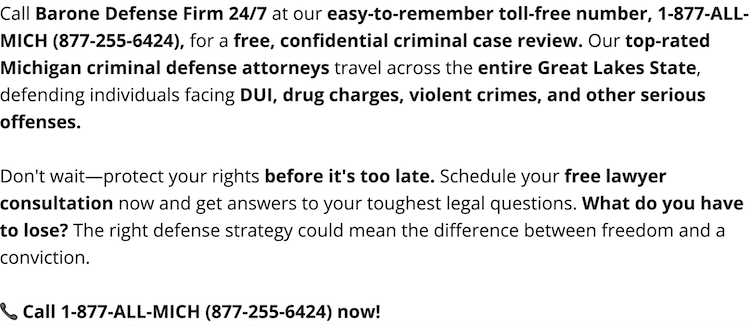Birmingham Building a Third Offense DUI Defense
Building a Birmingham third offense DUI defense is almost the same as a first or second offense. A person with a third offense needs an attorney who understands what they are doing and has done it before. It is important to get all of the information available from police reports, any videos that exist, 911 calls, test results, and the testing logs to determine whether the tests were in compliance. A savvy defense attorney may need that information to examine the materials and develop arguments based on the information presented by the prosecutor.
Many of the things that are defenses in drunk driving are technical in nature and require a deep of the law, the science, and how a human body works. Having someone who is a great lawyer is not always the answer in a drunk driving case. The lawyer must be familiar with the science and know how to successfully argue against the perceptions of the facts by the prosecutors, police officers, and judges. Their opinions are based on faulty science. It is important that a person has an attorney who understands them and is able to make those arguments.
Jury’s Exposure to Case DetailsIn a felony case in Michigan, the jury is not informed that this is the third offense. They may potentially assume that it is the first offense, but different courts might give some jurors an understanding that it is a third offense by the fact that there are 12 jurors on the jury versus six. The jury is told that the case has the five basic elements of any drunk driving charge, on this day, at this time, in this place, someone was driving, and if they were consuming alcohol prior to driving.
Important Factors & EvidenceThere are many important factors to focus on when building a Birmingham third offense DUI defense. The prosecution may show that the amount of alcohol intoxicated them or impaired the person’s ability to drive, that could be a conviction. The attorney investigates each one of those elements, specifically whether someone was driving or operating a vehicle in Michigan. There is the operating when intoxicated standard or whether the person was actually intoxicated or impaired. A defense attorney may build their case in order to counter the prosecution’s accusations.
Many times the test the police officers and the government rely on are faulty. It is important to show that the tests they use are not as scientific as they allege. There are many flaws and loopholes in those tests that people need to be aware of because they do not want to be convicted of a felony based on faulty science.
Defending Third Offenses and First OffensesThere are many factors in building a Birmingham third offense DUI defense. Sometimes in third offense drunk driving, the person accused is incarcerated while waiting for their case to be heard in court. It is important that a person has an attorney who can go to the jail and meet with them before they appear in front of a judge.
Many people are released on a bond. During that period the attorney can use every avenue available to make sure that if a person needs help, they can facilitate that. It is not on the court to decide whether someone needs help. As a trained professional, the attorney may see signs of alcohol problems. One huge warning sign is the third offense, but it is not always true. The attorney must do everything possible to help a person avoid whatever is causing the drunk driving cases. Many times it is not just an alcohol situation; it is a dual diagnosis.
Many people have issues and they self-medicate using alcohol in an attempt to deal with those issues. The attorney needs to identify those issues to avoid a fourth, fifth, or sixth offense. The attorney can start the process of helping someone get their life back by making sure they get the help they need.
PreparationWhen building a Birmingham third offense DUI defense, a person prepares for arguing the case in multiple levels of courts. They prepare an individual for the district court level and the preliminary examination. They prepare the person for a circuit court prosecutor, a circuit court judge and a potential circuit court trial which is a lengthier and deals with more jurors.
A defense attorney may choose to gather information in order to negotiate with the prosecution. This information can be used to negotiate something that benefits the individual. If they cannot do that, they prepare to go to trial.
 Barone Defense Firm Home
Barone Defense Firm Home




















